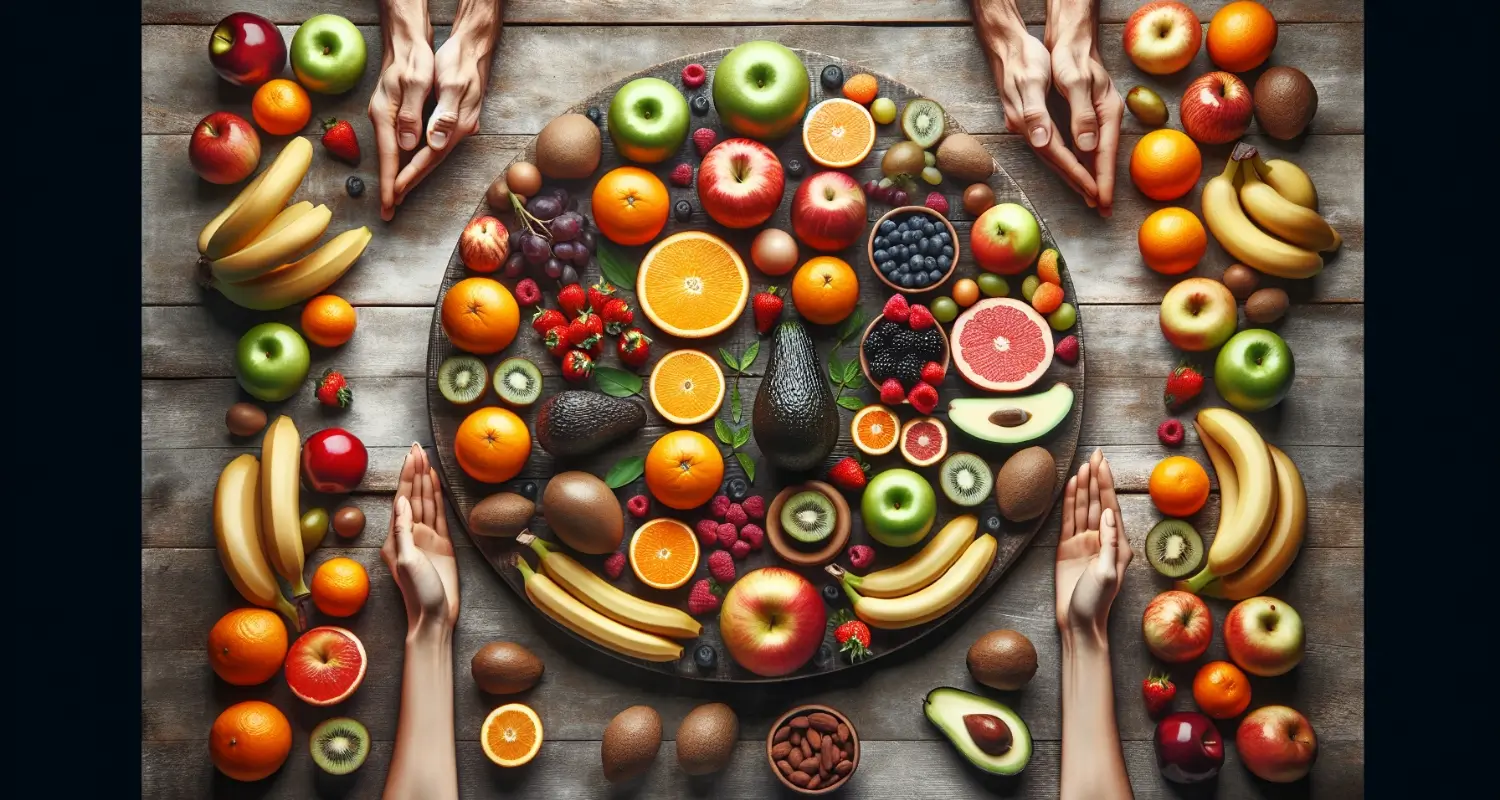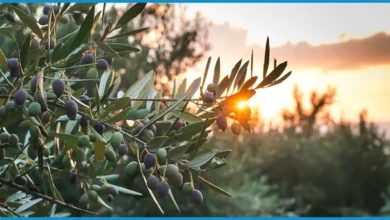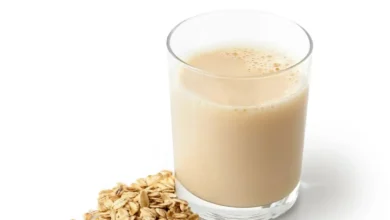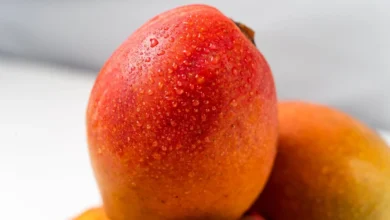What to Eat to Lose Weight: Top 10 Fruits to Include in Your Diet

Eating a healthy diet is crucial for maintaining overall health and achieving weight loss goals. The U.S. Department of Agriculture recommends most adults to eat 1.5 to 2.5 cups of fruit daily, with at least half coming from whole fruit 3. Fruits are nutrient-dense and low in calories, making them a good replacement for higher-calorie foods 2. Incorporating a variety of fruits into your diet can provide key nutrients and antioxidants that are beneficial for overall health and protection against chronic diseases 3.
When it comes to losing weight, fruits can be an excellent addition to your diet. Fruits are low in calories but high in nutrients, making them a good choice for those looking to lose weight 2. They are also filling due to their water and fiber content, which can lead to reductions in appetite and food intake, promoting weight loss 2 4. Several studies have found an association between fruit intake and weight loss, making it one of the best ways to lose weight 4. In this article, we will explore the top 10 fruits to include in your diet when aiming to lose weight, focusing on their nutrient profiles and potential benefits for weight management.
Berries (Blueberries, Strawberries, Raspberries)
Blueberries, raspberries, and strawberries are excellent choices for weight loss due to their low calorie content and high nutritional value 2 7 9. Blueberries, in particular, have been shown to influence genes that regulate fat-burning and storage, helping to reduce abdominal fat and lower cholesterol 7. When combined with a low-fat diet, blueberries can also lower triglycerides and improve blood sugar levels 7. One serving of blueberries provides as many health-promoting antioxidants as five servings of broccoli, with only 80 calories 7.
Raspberries are another great option for weight loss, thanks to their high fiber and water content, which adds volume to meals and helps curb hunger 2. One cup of raspberries provides approximately 10 grams of fiber, promoting weight loss, regularity, slower digestion, and stable blood sugar levels 2. Raspberries are also packed with antioxidants, such as anthocyanins and vitamin C, which have anti-inflammatory properties 2 11.
Researchers at Cal Poly Humboldt’s Human Performance Lab found that consuming wild blueberries can help burn fat during exercise, with fat oxidation rates rising by 19.7%, 43.2%, and 31.1% at 20, 30, and 40 minutes after cycling 8. Anthocyanins, compounds that give fruits their vibrant colors, may be responsible for the increased fat oxidation 8 11. Strawberries, also low in calories and high in fiber and antioxidants, can help regulate blood sugar levels and aid in weight management 9 11. Incorporating these berries into your diet, whether eaten raw or added to various foods like yogurt, cereal, oatmeal, or muffins, can support your weight loss goals while providing numerous health benefits 2 9.
Citrus Fruits (Oranges, Grapefruit)
Citrus fruits, such as oranges and grapefruits, are excellent choices for those looking to lose weight due to their low calorie content and high nutritional value 12 13 14 15. A 2015 study found that eating citrus fruits was linked to weight loss 12. These fruits are rich in vitamins and plant compounds, including vitamin C, B vitamins, potassium, phosphorous, magnesium, copper, flavonoids, carotenoids, and essential oils 12 15. They are also a good source of soluble fiber, which helps lower cholesterol, aids digestion, and promotes feelings of fullness 12 13 15.
The low glycemic index of citrus fruits means they do not cause a rapid spike in blood sugar levels, making them a great addition to a weight-loss diet 13 15. Grapefruit, in particular, has been found to lower insulin levels in the body, which can lead to fewer cravings and thus, weight loss 14. A 2004 study from BBC News indicated that participants who consumed grapefruit in their diet experienced an average weight loss of 3 lb 14. Eating grapefruit before meals can also lead to reduced calorie intake and improved heart health 11.
Citrus fruits aid in weight loss due to their vitamin C and antioxidant content 14 15. Vitamin C, found abundantly in these fruits, may help reduce the duration and severity of colds, benefit your skin by promoting collagen production, and protect against harmful UV rays 13. Some studies suggest that consuming vitamin C-rich foods, like citrus fruits, may help enhance fat oxidation during moderate-intensity exercise, potentially supporting weight loss efforts 15. Additionally, the compounds found in citrus fruits support liver health and aid in the body’s natural detoxification processes, which can be beneficial for weight loss 15.
Stone Fruits (Cherries, Peaches)
Stone fruits, also known as drupes, are a group of seasonal fruits with a fleshy exterior and a stone, or pit, on the inside 10. They include peaches, nectarines, plums, cherries, and apricots 10. These fruits are low in calories, with one medium peach containing 58 calories, one cup of cherries providing 87 calories, and two small plums or four apricots having less than 70 calories each 10. Stone fruits are also low GI and rich in nutrients like vitamins C and A 10.
Stone fruits belong to the Prunus genus and have a thin skin with soft flesh 16. They stop ripening right after being picked, making the stone fruit season narrow, but different varieties ripen at different times, making it easy to find several types available throughout the year 16. Fruits on the stone fruit list are an excellent source of vitamins, minerals, and antioxidants, potentially helping enhance bone health, boost weight loss, improve immune function, and more 16 17. They are rich in inflammation-fighting phytonutrients and are a good source of fiber and potassium, which can help:
- Lower blood pressure 17 23
- Keep weight in check 17 23
- Boost eye health 17 23
- Stave off disease 17 23
- Improve skin 17 23
Specific compounds found in stone fruits offer additional benefits:
- Anthocyanins, found in cherries and plums, may offer protection against cancer, heart disease, diabetes, and cognitive decline 17.
- Vitamin A, found in apricots and mangoes, is essential for eye health 17.
- Vitamin C, found in peaches and nectarines, helps prevent cell damage and aids in the production of skin-smoothing collagen 17.
- Phenolic compounds in peaches, plums, and nectarines have anti-obesity, anti-inflammatory, and anti-diabetic properties, potentially reducing the oxidation of bad cholesterol 18.
Stone fruits can be included in the daily diet in various ways, such as preparing smoothies, juices, or salads, adding them to porridges, pies, or cakes, or consuming them raw 19. They are not only delicious but also beneficial for weight loss, helping maintain energy levels and mood due to their rich potassium content, which is often deficient in many weight loss diets 20. The high fiber content in stone fruits helps in feeling full and satisfied for longer periods, making it easier to resist temptation 20.
Tropical Fruits (Kiwi, Mango)
Tropical fruits, such as kiwi and mango, can be excellent additions to a weight loss diet due to their high fiber content, low calorie count, and compounds that boost metabolism 21. Kiwifruit, in particular, is high in vitamins and fiber, and may help control blood sugar, improve cholesterol levels, and support gut health, all of which can contribute to weight loss 10. Studies have shown that kiwi consumption can lead to significant decreases in inflammatory markers, blood pressure, and body fat 11.
Mangoes, although sweet, are rich in vitamins and minerals, contain dietary fiber, and can satisfy sugar cravings 21. Vitamin A, found in mangoes, is essential for eye health 17. Research has also indicated that mango consumption can lead to lower BMIs, improved nutrient intake, and a reduced risk of chronic diseases 11.
Incorporating tropical fruits into your diet can be as simple as consuming them raw or adding them to various recipes. Another effective way to reap the benefits of these fruits is by making tropical fruit-infused water. To prepare this at home, combine 1 cup of sliced tropical fruits (such as pineapple, mango, papaya, or kiwi) with 2 liters of water and let the mixture sit in the refrigerator for at least an hour to allow the flavors to infuse 22. Drinking tropical fruit-infused water can boost metabolism due to the natural sugars and enzymes present in the fruits, and curb appetite, reducing overall food intake 22.
Pomegranate Seeds
Pomegranates are a nutritious and delicious addition to any weight loss diet. These vibrant fruits are high in fiber and antioxidants, which can aid in weight management and reduce inflammation 11. Pomegranates are rich in antioxidants that help protect cells from damage and reduce inflammation 23. Half of a pomegranate contains 72 calories, 2.35 grams of protein, 1.6 grams of fat, 26 grams of carbohydrates, 5.5 grams of fiber, and 20 grams of sugar 23.
Pomegranate seeds have been associated with weight loss due to their moderate fiber content and low-calorie count 24. The fiber in pomegranates helps promote satiety, reducing overall calorie intake and promoting weight loss 24. A human study showed that administering 120 mL of pomegranate juice daily for one month significantly decreased fat mass in adults 24. Pomegranates also contain polyphenols, which may help boost metabolism and increase fat burning 24.
One hundred grams of pomegranate holds the following nutritional values:
- Energy: 83 kcal
- Protein: 1.67g
- Carbohydrates: 18.7g
- Fat: 1.17g
- Fiber: 4g
- Calcium: 10mg
- Iron: 0.3mg
- Magnesium: 12mg
- Phosphorus: 36mg
- Potassium: 236mg
- Sodium: 3mg
- Folate: 38µg
- Vitamin K: 16.4mg
- Vitamin C: 10.2mg 24
The recommended amount for consumption is 1 cup/250-300 grams daily for weight loss 24. Pomegranate seeds are rich in antioxidants and contain punicic acid, which can help boost metabolism and reduce appetite, aiding in weight loss efforts 25. A single pomegranate provides about 1 gram of fiber, which can help promote feelings of fullness and support healthy digestion 25. Additionally, pomegranate seeds have been shown to help reduce inflammation, which is associated with obesity and weight gain 25.
Watermelon
Watermelon, a refreshing and hydrating fruit, is an excellent choice for weight loss due to its low calorie content and high water content 1 26 29. A 100-gram serving of watermelon contains only 30 calories 1, and one cup provides just 45 calories 26. The fruit consists of 90-92% water 1 26, which can help you feel full and reduce cravings between meals 1.
Consuming watermelon has been shown to lead to significant reductions in body weight, BMI, blood pressure, and waist-to-hip ratio 26. The fruit also contains an amino acid called citrulline, which can increase nitric oxide production, improve blood flow, and help with muscle soreness 26 29. Arginine supplementation, which can be derived from citrulline, may help reduce BMI, waist circumference, and fat mass 26.
In addition to its weight loss benefits, watermelon is a good source of:
- Vitamin A, essential for healthy vision 28
- Vitamin B-1, which helps your body convert food into energy 28
- Vitamin B-6, needed for red blood cell creation 28
- Vitamin C, vital for tissue growth and repair 28
- Lycopene, an antioxidant that may help protect against heart disease and cancer 28 29
- Other vitamins and minerals, particularly potassium and magnesium 29
Watermelon can be enjoyed in various ways, such as:
- Cubes or grilled slices 26
- In salads 26
- As juice or salsa 26
- In smoothies 29
- As flavored water 29
- In cocktails 29
While the watermelon diet, a cleanse diet involving consuming only watermelon for three days, may be appealing due to its short-term commitment 27, it is not recommended for overall health and well-being 29. The diet’s restrictive nature may lead to a lack of protein, making it unsuitable for children, pregnant women, or individuals with certain health conditions 28. For successful and sustainable weight loss, it is advised to focus on adopting a holistic approach to nutrition and lifestyle choices, including balanced nutrition, portion control, prioritizing whole foods, regular physical activity, mindful eating habits, consistency, and long-term commitment 29. Consulting with a healthcare professional or registered dietitian is recommended before making any significant dietary changes 29.
Conclusion
Incorporating a variety of nutrient-dense fruits into your diet can be a delicious and effective strategy for achieving your weight loss goals. From antioxidant-rich berries and hydrating watermelon to fiber-packed citrus and tropical fruits, these natural treats offer a wide range of health benefits that extend beyond weight management. By replacing high-calorie snacks with these wholesome fruits, you can reduce your overall calorie intake while still enjoying satisfying and flavorful options.
Remember, successful weight loss is a journey that requires a balanced approach to nutrition and lifestyle habits. While fruits can be a valuable addition to your diet, it’s essential to combine them with other nutrient-dense foods, regular physical activity, and mindful eating practices for optimal results. By making these fruits a regular part of your weight loss plan, you’ll be well on your way to achieving a healthier, happier you.
FAQs
What are the top fruits to eat for weight loss? The best fruits to include in your diet for weight loss are:
- Grapefruit, which is known for its association with dieting.
- Apples, which are low in calories and high in fiber.
- A variety of berries, which offer antioxidants and fiber.
- Stone fruits, such as peaches and plums.
- Passion fruit, which is high in fiber and nutrients.
- Rhubarb, which is low in calories.
- Kiwifruit, which offers vitamin C and fiber.
- Melons, like watermelon and cantaloupe, which have high water content.
Which fruit should I eat to reduce belly fat? Berries such as strawberries, blueberries, raspberries, and blackberries are excellent for reducing belly fat. They’re rich in fiber and antioxidants, which can help to combat inflammation and assist in weight loss efforts.
Can you list 10 foods that are beneficial for weight loss? Certainly, here are 10 foods that can help you lose weight:
- Chia seeds, which are high in fiber and omega-3 fatty acids.
- Fatty fish like salmon, which provide omega-3 fatty acids and protein.
- Cruciferous vegetables, including broccoli and cauliflower, which are low in calories and high in fiber.
- Whole grains, which can keep you feeling full longer.
- Apples, which are high in fiber and low in calories.
- Fermented foods, which may improve gut health and metabolism.
- Pistachios, a nutrient-dense nut.
- Eggs, which are a great source of protein and can help keep you satiated.
What is considered the healthiest fruit? Blueberries are often considered the healthiest fruit. Their deep blue color is due to anthocyanins, powerful antioxidants that have been linked to numerous health benefits. Regular consumption of blueberries may reduce the risk of heart disease and type 2 diabetes.



